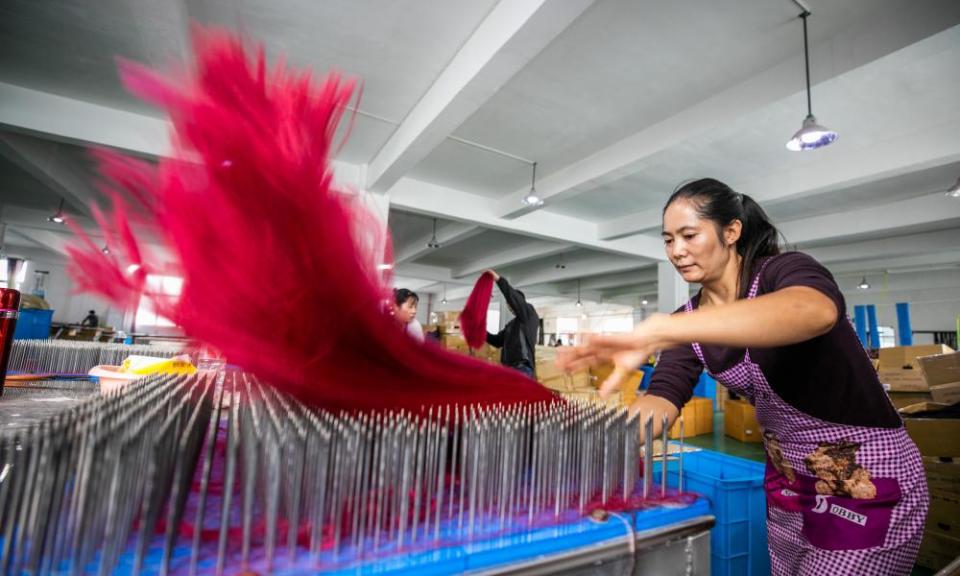China becomes first major economy to recover from Covid-19 pandemic
Watch: China's economy has bounced back even further in the third quarter
The Chinese economy grew 4.9% between July and September, according to government data, as China becomes the first major economy to recover from the Covid-19 pandemic.
The year-on-year expansion, while slightly lower than analyst expectations, represents a dramatic reversal from the first quarter of this year when the economy shrunk by 6.8%, China’s first contraction since 1992 when officials began keeping quarterly GDP data.
Related: China's main stock markets hit combined record high of $10.08tn
China’s central bank governor Yi Gang said on Sunday that officials predict annual growth of about 2%. “The Chinese economy remains resilient with great potential. Continued recovery is anticipated, which will benefit the global recovery,” he said.

China is expected to be the only G20 economy to grow this year. The global economy is slated to contract by 4.4%, according to the International Monetary Fund, the steepest downturn since the Great Depression.
Covid-19 first emerged in central China in Wuhan in December and by early April, lockdowns were lifted as the country gradually re-opened factories and businesses while travel restrictions were loosened. Policymakers released targeted stimulus measures from tax cuts and lower interest rates to credit local governments and cheaper lending for businesses.
Most Chinese cities have returned to normal with schools and offices reopened. Before a new outbreak in the eastern province of Shandong this month, the country had gone almost two months without any new locally transmitted cases. China has officially reported 4,634 coronavirus deaths and more than 85,000 confirmed cases.
Data on Monday showed industrial production in September rose 6.9% compared to the same period last year. Retail sales were up 3.3%. Auto sales for the month also increased 12.8% while domestic air travel exceeded pre-pandemic levels. Consumer spending has begun to pick up again, illustrated by a resurgence in tourism during a week-long public holiday in October known as Golden Week.

Observers say the strength of China’s economic recovery still remains uncertain in the face of job losses, uneven growth across the country, elevated levels of household and corporate debt, as well as trade frictions as ties with the US and other trading partners continue to deteriorate. Others doubt official economic data, which have in the past been inflated by local governments.
Related: China promotes 'revenge travel' to boost economy after Covid lockdowns
The Chinese leadership, anticipating slower growth and a more difficult international environment, are pursuing a new strategy known as a “dual circulation economy.” The concept, first proposed by Xi Jinping in May is aimed at reducing the country’s reliance on overseas markets and technology and fostering domestic consumption and advances in technology.
Watch: What is a V-shaped economic recovery?
“Globalisation is facing a reversal, with rising protectionism and unilateralism. The world economy is weakening as international trade and investment, science, technology … security and politics are all undergoing profound change,” Xi said in a speech in Shenzhen last Wednesday.
“We are forming a new development pattern with the domestic economic cycle playing a leading role. Our economy is at a critical period of transformation,” he said.
On Weibo, internet users were skeptical of the new data. One commented that they and several of their colleagues had received New Year bonuses, typically given before China’s spring festival, months early.
“How could the numbers not look good?” the commentator said. “The price of everything is higher,” another said. “As always, I do not believe them,” one said.


